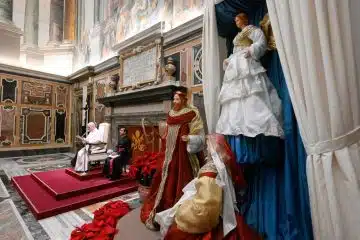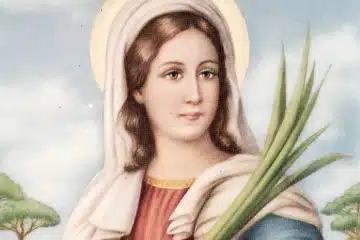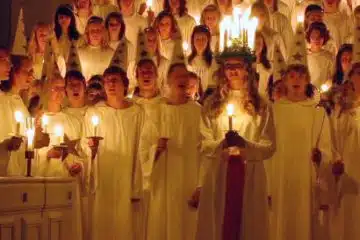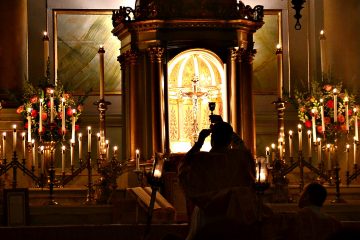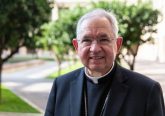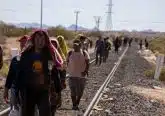Converted by love, not ideology: An archbishop’s reflection on Dorothy Day
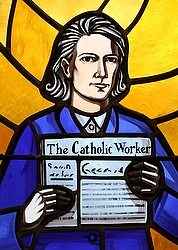
CNA/EWTN News
Last week, Archbishop Jose H. Gomez of Los Angeles told scholars at the Dorothy Day Conference at St. Francis University that the social activist was not converted by ideology, but by love.
“It was not the teachings of the Church that convinced her to leave the past behind and change her life. She was changed by Love, changed by the over-powering awareness of the reality of God’s love and mercy,” the archbishop said during his May 14 keynote address at the Dorothy Day Conference in Fort Wayne, Indiana.
Archbishop Gomez said he admires the social activist for the example of holiness that she has left for today’s Catholics.
As a young woman in the early 20th century, Day embraced what she and many others in her generation believed would bring happiness: a life that included abortion, communism and “free love.”
“Dorothy and many others thought they had found the ‘answers’ they were looking for in the ‘progressive’ vision of a society liberated from Christian morality and the capitalist economy,” Archbishop Gomez said, but what followed was a period of great pain and suffering in her life, including the abortion of her child.
When Day converted to Catholicism years later in 1929, it was not due to the hardships she had endured, the archbishop continued. Rather, Day converted because she found love – first in the birth of her beloved daughter, Tamar, and then in God.
“As she described it, the beauty of the created world convinced her that there must be a Creator. The joy of human love helped her to realize the beauty of divine love,” he explained. “She came to see that her life – and all our lives – are a search for love, a search for a love that is Supreme, for God.”
While it remains to be seen whether the Church will declare Day a saint – she is currently recognized as a Servant of God – Archbishop Gomez said that her life makes him want to be a saint.
“And I know a lot of people feel the same way – including some of you, probably,” he said.
Archbishop Gomez reflected that the great Catholic social activist has left a legacy that illustrated how to live in and evangelize a culture that has rejected God. Day believed that the surest way to do this “was to raise up a new generation of saints.”
While not everyone is called to a radical life among the poor like Day, we are all called “to take personal responsibility” in caring for the poor and to live out something she called “heroic charity,” the archbishop said.
When we see Christ in others, we are moved to serve Christ in others, he explained.
“Dorothy Day helps us to see that Jesus made the works of mercy the way for every Christian. She told us over and over what Jesus said – that in the evening of our lives, our love for God will be judged by the mercy we have shown to others – especially those who are the most vulnerable, those who cannot defend themselves,” he said.
Day’s example of holiness and service is echoed today in Pope Francis’ teachings when he talks about going “to the peripheries” to evangelize and serve, Archbishop Gomez continued.
Just like Pope Francis, everything for Day “was rooted in the encounter with Jesus Christ,” – and not simply an ideology – he said.
The Dorothy Day Conference also featured talks from Day’s granddaughter Martha Hennessy; author Brandon Vogt; Kathryn Jean Lopez of the National Review; and publisher and editor of Day’s diaries Robert Ellsberg.
Posted May 20, 2015



